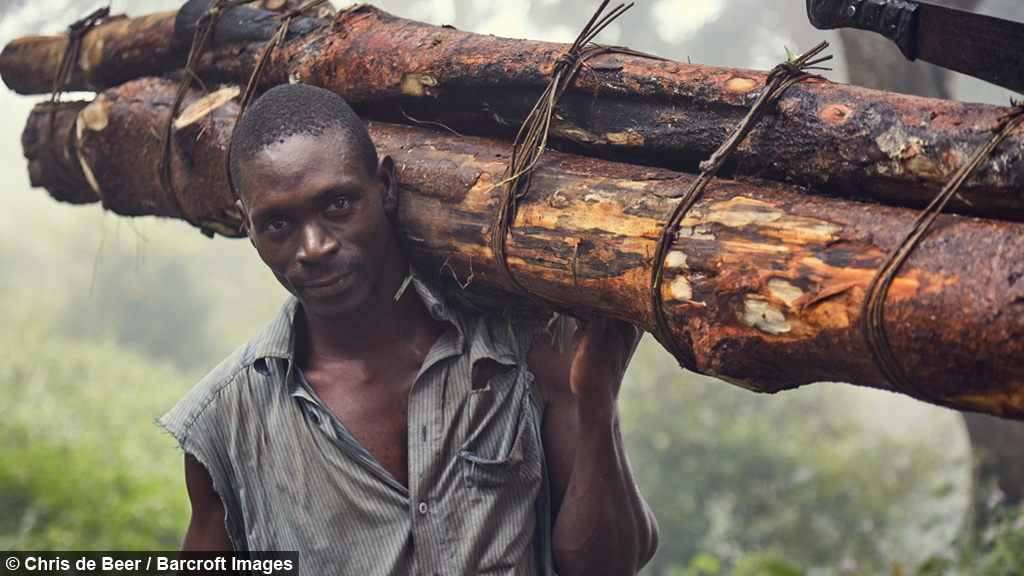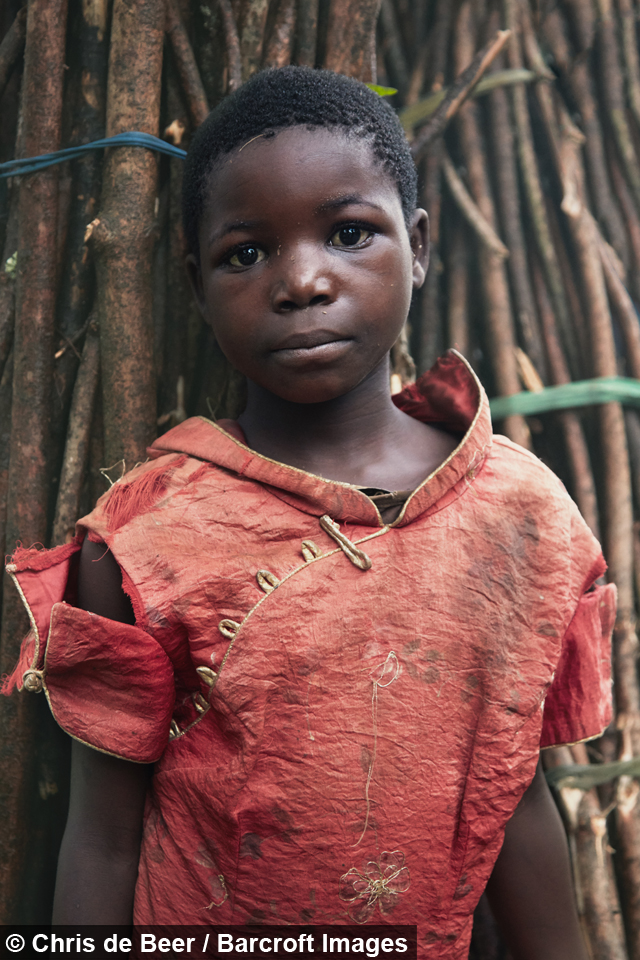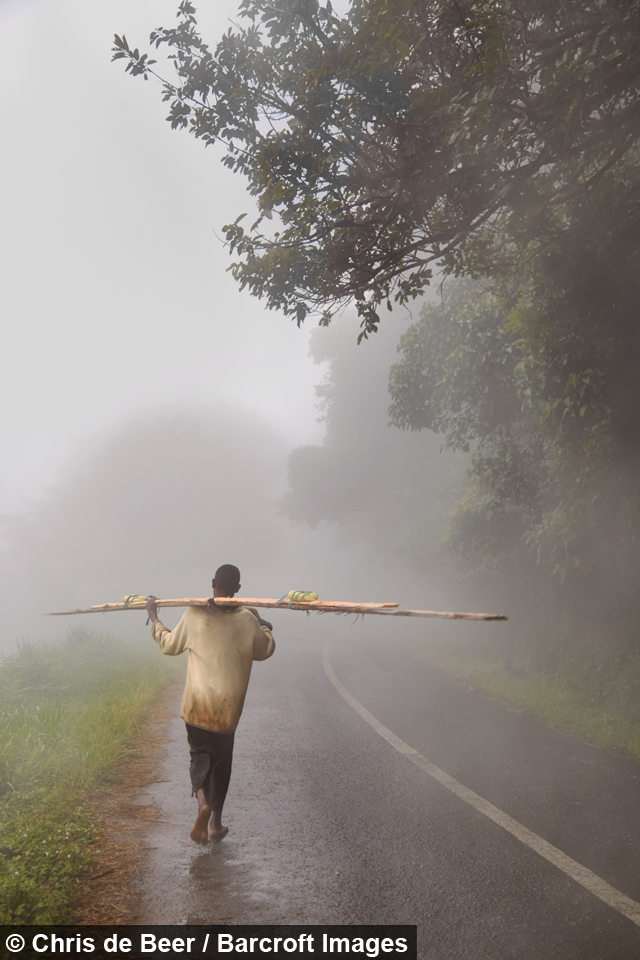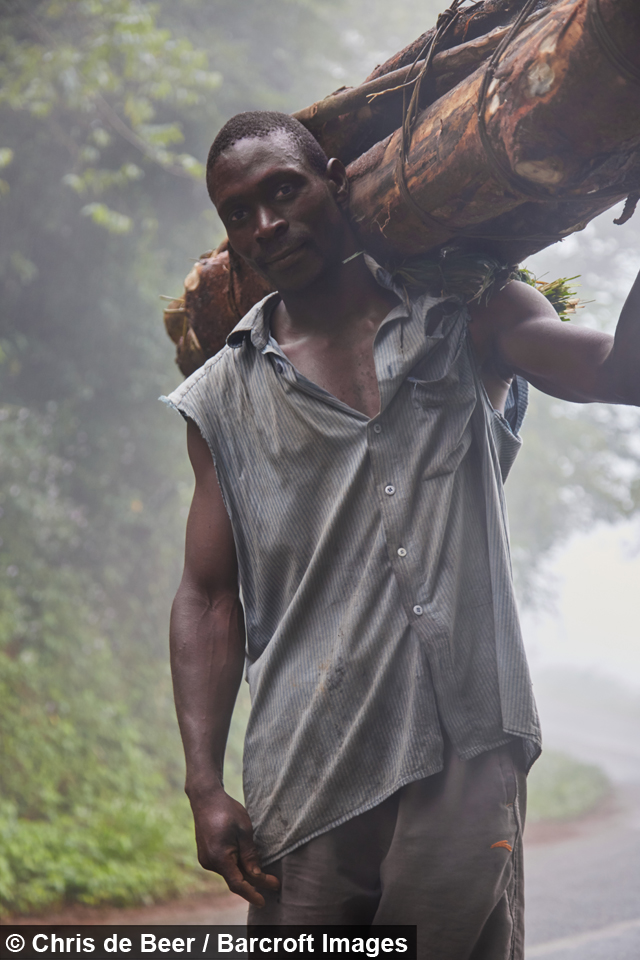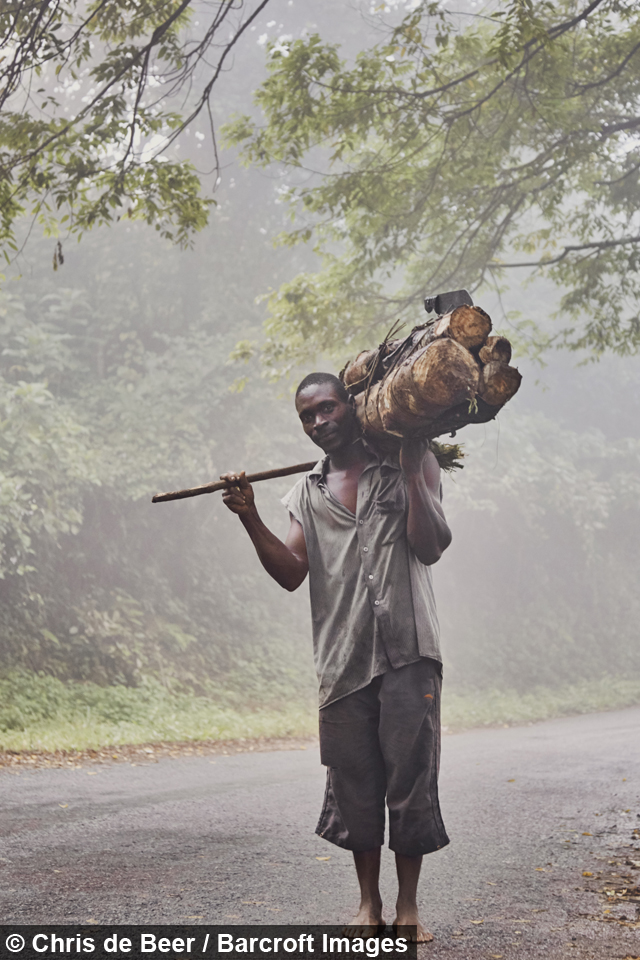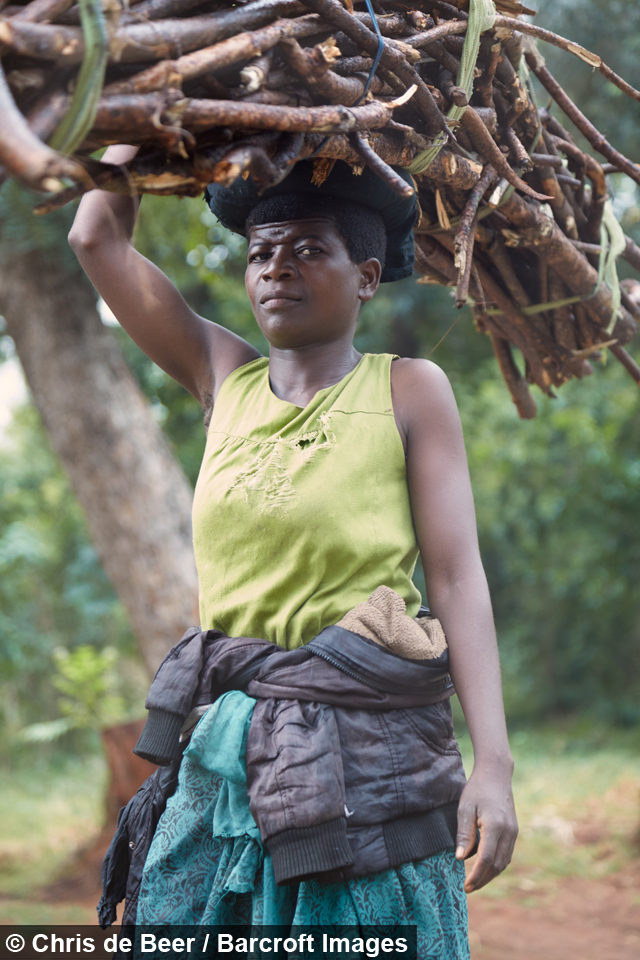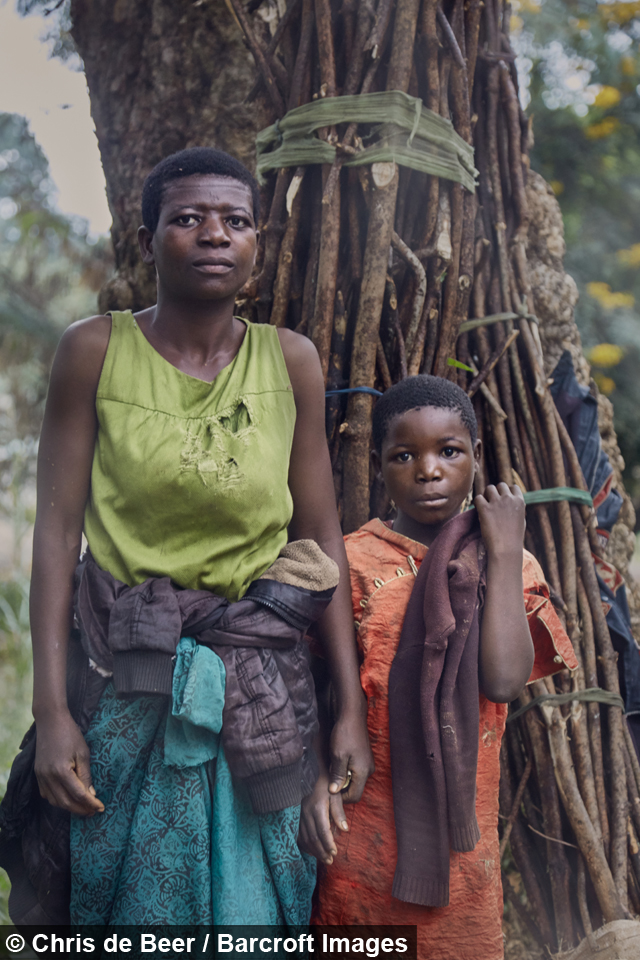Loggers Carving Their Livelihood From Malawi's Declining Forests
By Hannah Stevens @hannahshewans
Scroll down for the full story
South African photojournalist Chris de Beer was on holiday in the region when she came across loggers hiking through the woods to hack down trees.
Barefoot subsistence loggers hike up the mountain, even in the most extreme weather, to carve their income out of Malawi’s Zomba Plateau.
Chris said: “This backbreaking work deemed illegal by the government, but for many of the woodcutters, a necessary way of earning an income.
“Malawi is one the poorest countries in Africa and since most Malawians live outside city centres without basic services from the government, they use wood as integral fuel in their daily lives.
“Even when electricity is available, it is rationed by the government. In the wake of a huge environmental crisis, the demand for wood and charcoal stays high and the woodcutters take on the work with few other ways to earn a living.”
Malawi has one of the highest rates of deforestation in the world and logging has become endemic, but the Malawian government is taking steps to protect vulnerable areas.
Soldiers form the Malawi Defence Force have even been deployed in at risk areas to ward off illegal loggers.
In May, 35 foreign nationals from Mozambique and China were jailed for 18 months for logging illegally, satellite images revealed they had cut down a million protected mopane trees in just over a year where they worked - a loss valued at $37 million in court depositions.
Although the government has cracked down on deforestation to protect their forests, local loggers who rely on the surrounding forests to survive have been left in the dust.
Chris said: “Deforestation in Malawi is a major contributor to soil erosion, river siltation, droughts, flash floods and threats to biodiversity.
“But the environmental concerns are overshadowed by economic realities on the ground level for these small scale loggers who traverse the plateau daily.
“When they reach the end of the backbreaking haul, they sometimes have their wood confiscated by police.”
While on the train the photographer met one particularly memorable duo - Luda Lagdon and her young niece Tiwina, who has already started to accompany her aunt on logging trips.
She said: “The images of them were the most captivating for me and there’s something incredibly sad about such a young girl working such hard conditions to help her family. The bond between them was touching.
“I was also struck by the woman’s shoulders, which seemed lopsided from years of work with such heavy loads.”
At the end of each exhausting journey, loggers sell the logs for an average of 3500 kwacha - or £3.81, if their haul is not confiscated by local police.
The 26-year-old photographer added: “I hope people will be touched by meeting these loggers through the images. That they will see their humanity, strength, determination and struggle.
“I also hope that it will open up discussions and illuminate debates around conservation, making sure that the social realities of those who depend on the environment be respected and integrated into programs and research.”
